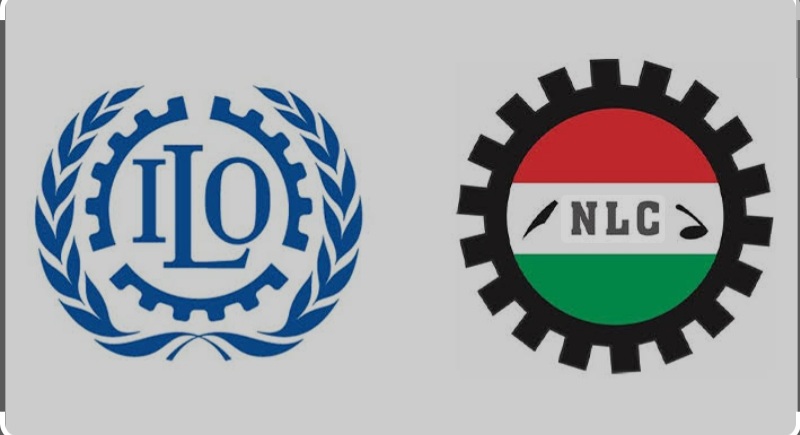
By Joan Nwagwu
The Nigeria Labour Congress (NLC) and the International Labour Organisation (ILO) has urged the informal sector to ensure the unionisation of workers for job protection and decent work in the country.
Mr Joe Ajaero, NLC President made the call at a two-day workshop organised by the NLC in collaboration with the ILO on Wednesday in Abuja.
The theme of the workshop was “Building Networks and Joint Action for Enhancing Decent Work in the Informal Economy”.
Ajaero said that it was imperative to unionise the workers based on the challenges they faced in the informal sector.
According to him, if you check in almost all government Ministries, Departments and Agencies (MDAs) there seems to be embargo on employment and nothing is happening but people are creating jobs for themselves.
” We discovered that a larger percentage of the people that deserve to be protected are within the informal sector economy, while some others in the formal sector.
“Some others have have their salaries and pensions guaranteed.
“As we have finished the the issue of the new minimum wage now, some will not make any effort, while some will implement it.
“Some others, probably the private sector, workers, will fight before they get it.
“So, it is important that we look at this chunk of the populace and make sure we provide protection for them, and that is by unionising them,”he said.
He said that there was need for workers in the Informal sector to be on board and also enjoy some of the benefits of being unionised, since they have a large population.
Ajaero said that the NLC had made great efforts in trying to register and encourage the different groups in the informal sector to belong to a trade union centre as it will be beneficial to them.
He therefore urged those that were registered to be proactive in union activities, like attending meetings, payment of dues and also observing rules and regulations of the Trade Union Centre.
Also, Dr Muttaqa Yusha’u, Head of Education in NLC, said that the workshop was organised to build a joint network of actions as well as capacity development for the workers in the informal economy.
“This is also particularly for the unions that have just been registered as trade unions and affiliates of the NLC.
” It is important to note that informal sector constitute almost 80 per cent of the workforce, so it is important the we organise the sector and also build their capacity on how to promote decent work.
“When we say decent work for informal sector workers, we are talking about social protection and how to have a social dialogue.
“Also, how they can have access to finances and skill development for them to be able to work as organisations and as workers.,”he said.
He also said that capacity development was one of the areas NLC had identified.
He said that the workshop was to look at issues around trade union governance structures, legal framework so they can operate as a typical trade union. .
“We are also looking at how they would know how to negotiate, strategies for negotiation in the informal economy,and
how they can interface with the policy makers.
Earlier, Ms Inviolata Chinyangarara, Senior Specialist, Workers’ Activities, ILO Country Office Abuja, said that seven out of 10 workers in the informal employment in Africa had no formal education or at best primary education.
She said that while formal jobs were not always decent jobs, workers in the informal economy faced the most serious decent work deficits.
“This is in terms of income insecurity, an informal employee earns on average 55 per cent of the average wage of a formal employee in Africa for a similar number of hours.
“If we consider exposure to poverty and all workers, workers in Africa are almost five times likely to live in poor households than formally employed workers,”she said.
Chinyangarara said that the workshop seeks, among other things, to reflect on innovative approaches that had contributed to the acceleration of transitions to the formal economy.
She added that the workshop was to reduce decent work deficits in the informal economy and also to build networks and joint actions for enhancing decent work in the informal economy.